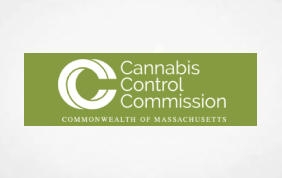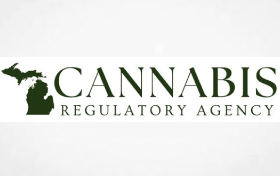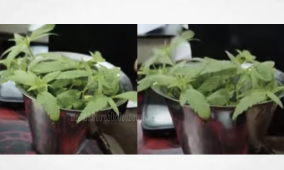Just to remind you why this Bulletin has finally appeared.
MJ Biz: Trulieve Reaches Settlement With OHSA After Death Of Employee, Lorna McMurrey.
THE BULLETIN
To: Licensees and Registered Agents
From: Investigations and Enforcement Department
Date: November 13, 2024
Subject: Bulletin – Ground Cannabis Dust and Workplace Safety
This Bulletin applies to all licensed Marijuana Establishments, Medical Marijuana Treatment Centers, Independent Testing Laboratories (collectively, “Licensees”), and their Registered Agents.
On June 13, 2024, the Massachusetts Cannabis Control Commission (the “Commission”) resolved an enforcement action relative to workplace safety violations following the tragic death of an employee. Separate from the Commission’s action, and prior to the resolution of regulatory violations, the Occupational Safety and Health Administration (OSHA) cited the Licensee for failing to evaluate and classify ground Cannabis dust as a hazardous chemical pursuant to 29 CFR 1910.1200(d)(1). OSHA has since cited other Licensees in Massachusetts and other jurisdictions for failing to comply with this federal regulation and other parts of the Hazard Communication Standard, 29 CFR 1910.1200.
In short, 29 CFR 1910.1200(d)(1) requires that employers evaluate the hazards of chemicals they produce and prepare Safety Data Sheets (SDS) to convey the hazard to downstream customers and exposed workers. All Licensees should be aware that ground Cannabis dust is a hazardous chemical and that OSHA has issued citations to Licensees who have failed to evaluate and classify accordingly. Licensees should evaluate the workplace safety and health risks including, but not limited to, skin and respiratory sensitization by an allergen associated with ground Cannabis dust generated during the Processing of Marijuana in their workplace. Studies conducted by both the National Institute for Health and the Center for Disease Control and Prevention have also shown that occupational exposure to cannabis in the workplace poses a risk for the development of allergic responses.
Commission regulations require that all Licensees implement and follow written workplace safety and health standard operating procedures and take necessary steps to ensure safety for employees when conducting all activities at a Licensee’s premises. Licensees engaged in the Processing of Marijuana also have a separate obligation to ensure that such activities are conducted in a safe and sanitary manner. On February 2, 2024, the Commission issued a bulletin on safe and sanitary requirements for the Processing of Marijuana. Lastly, all Licensees, like any business, are required to comply with the Occupational Safety and Health Act of 1970 and are subject to oversight from OSHA.
To comply with Commission regulations and maintain compliance with OSHA standards, all Licensees engaged in the Processing of Marijuana must come into compliance with the OSHA Hazard Communication Standard including the evaluation and development of SDSs for chemicals, such as ground Cannabis dust, employees may be exposed to in the occupational setting. All SDS developed by a Licensee must be made available to exposed employees and employee training is an important aspect of that hazard communication program.
Licensees must protect their employees from hazards associated with exposure to ground Cannabis dust by identifying appropriate engineering controls (e.g., local exhaust ventilation) and/or administrative controls (e.g., processes for limiting employee exposure). It is also a best practice to provide medical management to employees with symptoms. Personal Protective Equipment such as gloves and respiratory protection may also be appropriate to protect employees from exposure.
As the Commission continues to underscore efforts and requirements related to ensuring workplace safety it will inform the public and industry through the publication of additional bulletins, guidance, and/or regulations, which can be found on the Commission’s website at MassCannabisControl.com and the relevant Enforcement Announcements webpage.
Prior bulletins issued by the Commission on this subject and links to studies regarding occupational exposure to Cannabis in the workplace are included below.
If you have questions, please contact the Commission at (774) 415-0200 or Commission@CCCMass.com.
Employers can also get help with safety and health hazards and OSHA standards by requesting a no-cost, confidential safety and health consultation visit from the Massachusetts Department of Labor Standards On-Site Consultation Program at (508) 616-0461 ext. 2 or through their website at On-Site Consultation Program | Mass.gov.
Previous Bulletins:
Safe and Sanitary Requirements for the Processing of Marijuana | February 2, 2024
Relevant Studies and Articles:
Eidem, T., Nordgren, T. & Hernandez, M. (2024). Bioaerosol Exposures and Respiratory Diseases in Cannabis Workers. Current Allergy and Asthma Reports. Volume 24, 395–406. https://doi.org/10.1007/s11882-024-01157-7
King, B., Blackwood, C., Croston, T., Lemons, A., Chiu, S., Grant, M., Bailey, R., Dodd, K., Harvey, R., & Mazurek J. (2023). The Cannabis Industry and Work-related Asthma and Allergies. NIOSH Science Blog. Center for Disease Control and Prevention. https://blogs.cdc.gov/niosh-science-blog/2023/11/17/cannabis-allergies/
Decuyper, I. I., Green, B. J., Sussman, G. L., Ebo, D. G., Silvers, W. S., Pacheco, K., King, B. S., Cohn, J. R., Zeiger, R. S., Zeiger, J. S., Naimi, D. R., Beezhold, D. H., & Nayak, A. P. (2020). Occupational Allergies to Cannabis. The journal of allergy and clinical immunology. In practice, 8(10), 3331–3338. https://doi.org/10.1016/j.jaip.2020.09.003; https://www.ncbi.nlm.nih.gov/pmc/articles/PMC7837257/
Skypala, I. J., Jeimy, S., Brucker, H., Nayak, A. P., et. al. (2022). Cannabis-related allergies: An international overview and consensus recommendations. European Journal of Allergy and Clinical Immunology. Volume 77, Issue 7, 2038-2052. https://doi.org/10.1111/all.15237


















